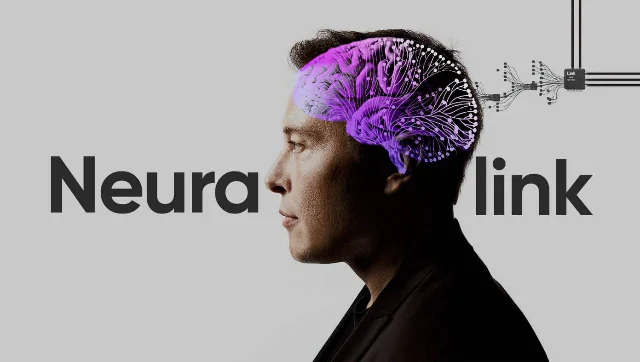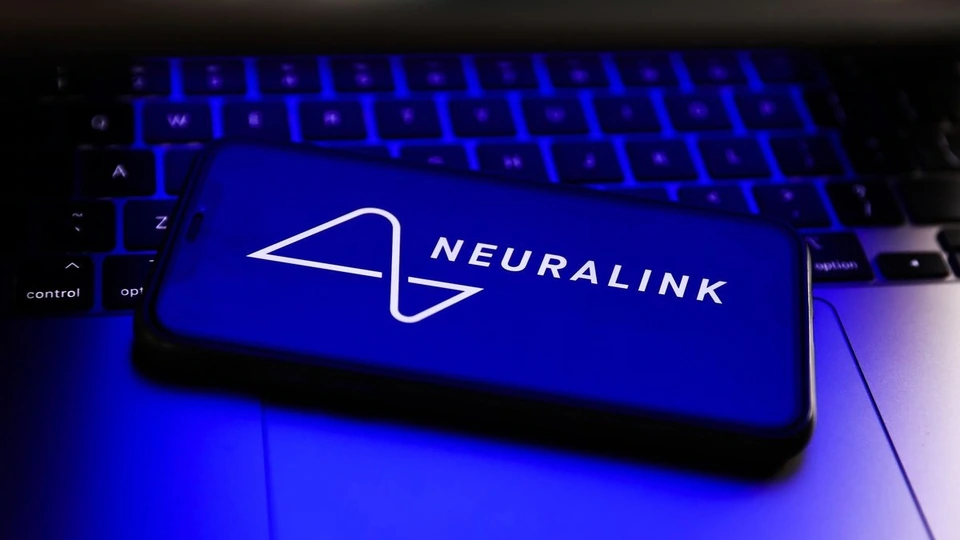Neuralink, the brain-computer interface (BCI) company that Elon Musk started, recently made news when it successfully implanted a brain chip in a person.
It is a big step forward for BCI technology, which could change the way we use computers significantly in the future. But this fantastic new technology comes with a lot of moral and social issues to think about.
Elon Musk is the first person to get a Neuralink brain chip implant. Since FDA approval in 2023, the neurotechnology company has begun its first human trial.
An implant that could allow patients with severe physical limitations to control digital devices with their thoughts is being tested. A brain-computer interface implant is implanted in the movement intention region of the brain for the investigation.
Musk says the implant recipient, Telepathy, is “recovering well” and that “initial results show promising neuron spike detection.” No other trial details are available.
Human-computer communication has improved. It raises crucial questions about how to link advanced technology with the mind and body, not only technically.
Read also: FDA approves Neuralink clinical trial on humans
Promises for the Future
Medical marvels:
Neuralink helps people with quadriplegia and ALS patients. Their processors enable thought-controlled device control, restoring connectivity and mobility. It might considerably improve many lives.
Better cognition:
Neuralink expects their method can boost cognition beyond medicine. Imagine downloading information directly into your brain, enhancing memory, or processing information at superhuman speeds. These exciting possibilities raise ethical problems about injustice and human-machine blurring.
Seamless Interaction:
Neuralink implants could effortlessly connect humans to the digital world. Control smart houses, manipulate virtual reality, or communicate with other implanted brains. There are many entertainment, collaboration, and information options.
Neuralink’s mission
Neuralink aims to “create a generalised brain interface to restore autonomy to those with unmet medical needs today and unlock human potential tomorrow.” This mission communicates two significant methods.
In the short term, the focus will be on individuals with medical needs. It helps maximise human potential, and the long-term vision goes beyond this. It shows that Neuralink wants its technology to improve cognitive and sensory function in the general population beyond medical purposes.
The advancement of Neuralink offers many potential possibilities. The first scenario predicts successful trials leading to narrow market adoption, a breakthrough with limited scope.
In the second, more hopeful scenario, successful human trials lead to broad acceptance and technology revolution. The third, more gloomy, evaluates the venture’s failure due to social, technological, legal, and medical concerns.
A realistic scenario
Neuralink will most likely succeed by developing medical applications for severely disabled people. This focused strategy will appeal to consumers who need life-changing technologies, driving early adoption.
Here, consumer adoption will depend on the technology’s perceived utility, privacy consequences, and risk-benefit ratio.
Public and ethical debates will shape Neuralink’s social trajectory. Data security, long-term health, and equitable access will dominate public discourse.
Neuralink’s technology’s medical efficacy, safety, ethical handling, and public trust will determine its adoption.
The optimistic scenario
In the best case, Neuralink’s technology transcends medical uses and enters daily life. This scenario imagines a future when the technology’s benefits are clearly shown and recognised beyond medicine, increasing interest across society.
Beyond medical concerns, Neuralink would appeal to consumers seeking improved cognition and sensory experiences. If Neuralink can provide strong safety and security assurances, worries about invasiveness and data privacy may be reduced as people grow more familiar with the technology.
Neuralink is a beneficial social change agent in the optimistic scenario. The technology could help humans communicate and interact in new ways.
Despite ethical issues, education, worker productivity, and quality of life may prevail. Public enthusiasm and the technology’s ability to improve lives may sway regulators.
Neuralink, which integrates into daily life and improves human-machine communication, symbolises human progress.
It could make gene editing and bioelectronic medicine ubiquitous.
The worst-case scenario
In the worst-case scenario, Neuralink will struggle to gain popularity. Due to technological restrictions, safety issues, or ethical issues, the technology may not meet high expectations.
Directly connecting with the brain may be technologically challenging, resulting in low performance or reliability.
More than presumed physical and psychological safety issues may include long-term health impacts that could deter consumers and clinicians.
The technology’s invasiveness and brain data privacy concerns may unnerve people. Early technology applications that favour a few may create scepticism and inequity.
ID, autonomy, and consciousness may be ethical issues with brain-computer interfaces. Public resistance may restrict research and development and impose strict regulations.
Technology, public scepticism, ethics, and regulations may derail Neuralink’s lofty goal, stalling or worsening the project.
Technology isn’t Neuralink’s only option. This programme will impact brain interfaces and human potential, highlighting the necessity for intentional innovation.
















